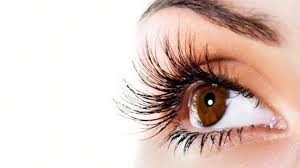Triclosan is an antibacterial compound added to soap, toothpaste and household cleaning agents, in the belief that disinfecting our surroundings is good for health.
Yes it is. But there’s a BUT.
Routinely disinfecting our body and surroundings may actually cause far more harm than good in the long run.
Not only does it promote the development of drug-resistant bacteria, but antibacterial compounds such as triclosan have also been linked to a number or harmful health effects, especially in young children.
Triclosan has been linked to:
- Allergies
- Thyroid dysfunction
- Hormone disruption
- Weight gain
- Inflammation leading to disease
Most recently, triclosan was found to aggravate the growth of liver and kidney tumors.
Besides hand soaps and products specifically marketed as antibacterial, triclosan can also be found in a number of other household and personal care products, including cutting boards, toys, acne cream, and even toothpaste.

At present, Colgate Total is the only triclosan-containing toothpaste sold in the US, but it’s a best-seller—chances are you have a tube in your bathroom right now. If you do, consider this: if triclosan can cause serious health problems when used topically, using it in your mouth is likely even worse, as chemicals are readily absorbed into your oral tissues.
Colgate claims its product is safe, of course, citing a Cochrane Review as supporting evidence. However, the authors, Philip Riley and Thomas Lamont, specifically noted that the studies did not allow them to assess any long-term side effects.
Warm water and a mild soap is really all you need to scrub off the germs. Even the US Food and Drug Administration (FDA) has stated that “there is currently no evidence that [antibacterial soaps] are any more effective at preventing illness than washing with plain soap and water.”
Proper Hand Washing Techniques
In one recent study, only five percent of people washed their hands in a way that would actually kill infection and illness-causing germs. So, to make sure you’re actually removing the germs when you wash your hands,
- Use warm, running water and a mild soap (avoid antibacterial soap)
- Work up a good lather, all the way up to your wrists, scrubbing for at least 15 or 20 seconds (most people only wash for about 6 seconds)
- Make sure you cover all surfaces, including the backs of your hands, wrists, between your fingers, and around and below your fingernails
- Rinse thoroughly under running water
- In public places, use a paper towel to open the door to protect from germs on the handles. Avoid hot air hand driers, they encourage growth of bacteria by fostering a warm, humid environment.

Keeping Yourself and Your Home Clean, Safely
It is highly advisable to ditch all chemical disinfectants, including antibacterial soaps, laundry detergents, and bath and kitchen cleansers, in favor of more natural alternatives.
Coconut oil also has potent disinfectant properties, and can be used to disinfect wooden cutting boards. Sunlight is another powerful disinfectant.
Truly, there’s no need to expose your family to dangerous chemical disinfectants. As an added bonus aside from the health benefits, using natural cleansers is much less expensive than commercial varieties.
Be Informed. And Be Healthy.




















